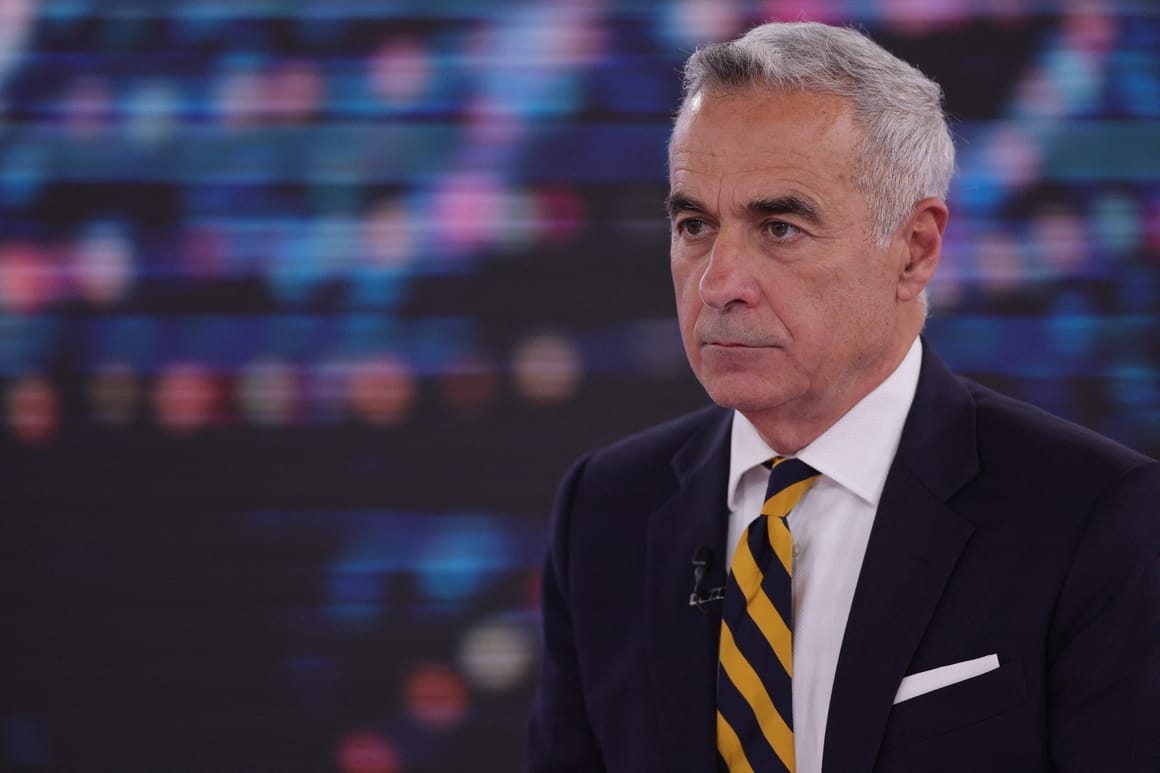NGOs Backing Judicial Coup in Romania Funded by USAID, State Department
American taxpayer money flows to think tanks backing the judicial ouster of a presidential candidate over flimsy "Russian disinformation" claims.
Dec 11, 2024
Five days ago, the Romanian high court, citing intelligence sources over alleged foreign disinformation influencing voters, annulled the country’s first-round presidential election results, which were won on Nov. 24th by populist independent candidate Calin Georgescu.
The intelligence report claimed that a “Russian hybrid attack” had boosted Georgescu's candidacy. The report, however, merely displayed charts showing popular TikTok and Telegram accounts promoting Georgescu and failed to show evidence of direct foreign meddling.The move marked the first time a European Union member state has reversed a democratic election, an unprecedented decision underscored by the flimsy justification.
In virtually any other context, a judicial intervention to nullify a popular election result would be seen as a blatant assault on civil society and democratic norms.Yet the decision was hailed by many members of Romanian civil society, who have opposed Georgescu because of his views, particularly over the Ukraine-Russia war. He has called Ukraine an “invented state,” said that Ukraine matters are "none of our business," and promised that he seeks a strategy of “peace with everyone, regardless of who they are.”
Such rhetoric has also alarmed U.S. and NATO officials. Romania is currently the staging ground for NATO training programs for Ukrainian pilots, and the country is hosting a construction project for what is set to be the largest NATO base in Europe.
The U.S., meanwhile, maintains its own sophisticated infrastructure of foreign influence over Romanian domestic political affairs, including groups that have shaped the unfolding crisis.
Think tanks and civil society NGOs funded by the U.S. – via USAID foreign aid programs, the National Endowment for Democracy (NED), and the State Department – have served as the most vocal voices championing the judicial coup.
"Faced with limited options, the Romanian government chose the least undemocratic way to mitigate the damage," wrote Oana Popescu-Zamfir, the president of the GlobalFocus Centre, a Bucharest-based think tank, in an analysis for the European Council on Foreign Relations. In the piece, she also hailed the mass arrest of Georgescu supporters.Popescu-Zamfir argued that the next step must be social media regulation and for Romanian officials to prosecute “domestic perpetrators” while “also proving their connections to Russia.”
Elena Calistru, the co-founder of Funky Citizens, a Romanian NGO focusing on democratic engagement, similarly touted a statement backing the judicial coup. On Twitter/X, Calistru endorsed a message from U.S. Ambassador Mark Gitenstein, who all but endorsed the judicial decision by praising its actions against "foreign interference in Romania's elections."
USAID, in a report detailing expenditures of the Black Sea Trust, a regional program to develop local NGOs, lists GlobalFocus and Funky Citizens as recipients of U.S. funding. GlobalFocus also acknowledges recent funding from NED and USAID, on its website.
In the days before the decision, other Romanian NGOs rallied to delegitimize the first-round election result.
Expert Forum, a democratic governance NGO in Bucharest, floated the possibility that TikTok had violated its own terms of use in allowing the spread of pro-Georgescu content during the election. Septimius Pârvu, executive director at Expert Forum, noted in a recent webinar that some of the pro-Georgescu TikTok accounts were created in 2016, suggesting that was evidence of a “long-term operation.”Federal records show the U.S. Embassy in Bucharest has provided a steady flow of contracts to Expert Forum. The most recent contract provides the group with $79,964 to develop an "integrated solution for democratic backsliding in Romania."
USAID supports similar NGOs in Romania, such as the Centre for Independent Journalism, Freedom House Romania, the Romanian Centre for Investigative Journalism, the Aspen Institute Romania, and the Balkan Investigative Reporting Network Romania.
Several anti-disinformation groups in Romania receive support from the Open Information Partnership, the U.S. and British-controlled consortium I wrote about earlier this year in regards to American-funded groups in Ukraine working to censor critics of the war. A leaked memo from the group defined disinformation broadly to include accurate and factual information that mirrors messages that fit “within existing Kremlin narratives, aims, or activities.”“The ruling sets a terrifying precedent,” noted journalist Thomas Fazi, in a piece on the crisis for Compact Magazine. “If vague accusations of foreign interference can nullify election results, any future electoral outcome that threatens entrenched elites could similarly be overturned. Unfortunately, what happened in Romania isn’t an outlier.”
Photo: Calin Georgescu spent much of his career in officialdom, specializing in agricultural affairs. (Octav Ganea/Getty Images)
Discussion about this post
No posts



